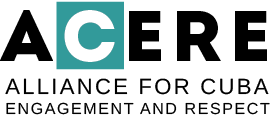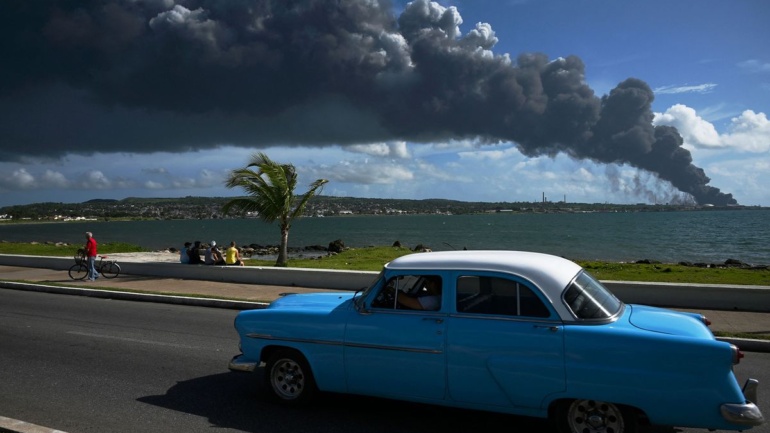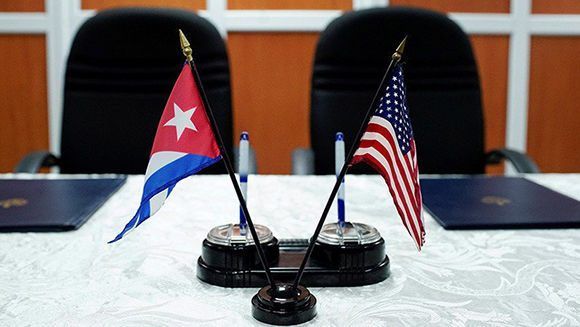The Alliance for Cuba Engagement and Respect (ACERE) draws attention to the root causes of the scattered protests in Santiago and other towns in eastern Cuba on March 17. Per media reports, “hundreds of protestors” 1took to the streets chanting “power and food”2 in response to 18+ hour-long blackouts, worsening food inflation and food scarcity. The protests were relatively small and peaceful, and there were no reports of mass arrests, injuries or fatalities, with local government officials quickly presenting themselves to listen to protestors’ demands. Yet proponents of regime change in Cuba are seizing the moment to misinform and fabricate new pretexts to maintain a policy of maximum pressure against Cuba. Representative Mario Diaz-Balart (R-FL) claimed the protestors “face brutal oppression,” while Representative Carlos Giménez (R-FL) inflated the number of protestors to “100,000s of Cubans.” These blatant exaggerations should neither obscure the fact that Cubans are frustrated with the hardships they are facing, nor the fact that U.S. policy is a major contributing factor to the suffering of the Cuban people.
ACERE notes that U.S. sanctions on Cuba are designed to hurt civilians. When then Secretary of State Mike Pompeo told a group of European diplomats that the goal of the Trump administration’s “maximum pressure” campaign was to “starve” Cuba3, he was restating U.S. policy that has been in place since 1960. In April of that year, months before the U.S. first imposed broad sectoral sanctions on Cuba, then U.S. Deputy Assistant Secretary of State for Inter-American Affairs, Lester Mallory, wrote the following:
The only foreseeable means of alienating internal support [for the Cuban government] is through disenchantment and disaffection based on economic dissatisfaction and hardship…. every possible means should be undertaken promptly to weaken the economic life of Cuba. If such a policy is adopted, it should be the result of a positive decision which would call forth a line of action which, while as adroit and inconspicuous as possible, makes the greatest inroads in denying money and supplies to Cuba, to decrease monetary and real wages, to bring about hunger, desperation and overthrow of government.4
In one sense, U.S. sanctions on Cuba, brought to unprecedented levels under the Trump and Biden administration, are “working” insofar as they are causing hunger and desperation. However, the goal of regime change is no closer today than it was sixty-four years ago, while Cuban migration to the U.S. is at a historic level. Protests and the continued frustrations of the Cuban people will be used as pretexts to continue funding ineffective “democracy assistance” programs and stifle attempts at engagement, including lifting the embargo and ending Cuba’s unfounded designation as a state sponsor of terrorism.
Following Sunday’s protests, the U.S. Embassy in Havana tweeted that it would “urge the Cuban government to respect the human rights of the protestors and address the legitimate needs of the Cuban people.” Yet the most systematic violation of the human rights of Cubans is the web of draconian laws and regulations that make up the U.S. embargo. ACERE recalls that donations of food and medicine for Cuba were blocked by the Trump administration at the height of the COVID-19 pandemic5. Moreover, Cuba faced a shortage of syringes that delayed its COVID-19 vaccination program for months; the shortage was caused by U.S. sanctions that the Biden administration chose to keep in place.6
What’s happening in Cuba right now is not a crisis born out of mismanagement by its authorities or of the economic system its citizens have chosen, it is a crisis born out of the callousness of U.S. policymakers who for too long have used the well-being of Cubans as a weapon to be wielded to force Cuba into submission. This is not to excuse policy mistakes by the Cuban government in mitigating the crisis, but the devastating impacts of the decades-long system of commercial, financial and economic sanctions against Cuba are routinely ignored or underemphasized by policymakers.
At ACERE, we believe that the best way to alleviate the hardships Cubans face is to be a good neighbor to Cuba by lifting broad-based sanctions, removing Cuba from the State Sponsors of Terrorism list, and returning to the path of diplomacy and engagement pursued by the Obama administration.
- https://www.nbcnews.com/news/latino/cuba-hundreds-take-streets-rare-protests-economic-crisis-deepens-rcna143871
↩︎ - https://www.reuters.com/world/americas/protest-erupts-eastern-cuba-amid-blackouts-food-shortages-2024-03-18/ ↩︎
- https://www.commondreams.org/views/2021/05/27/hunger-weapon-how-bidens-inaction-aggravating-cubas-food-crisis ↩︎
- https://history.state.gov/historicaldocuments/frus1958-60v06/d499 ↩︎
- https://apnews.com/article/2858fbaa2dd5460fa2988b888fc53748 ↩︎
- https://theintercept.com/2021/06/18/covid-vaccine-cuba-venezuela-sanctions/ ↩︎



